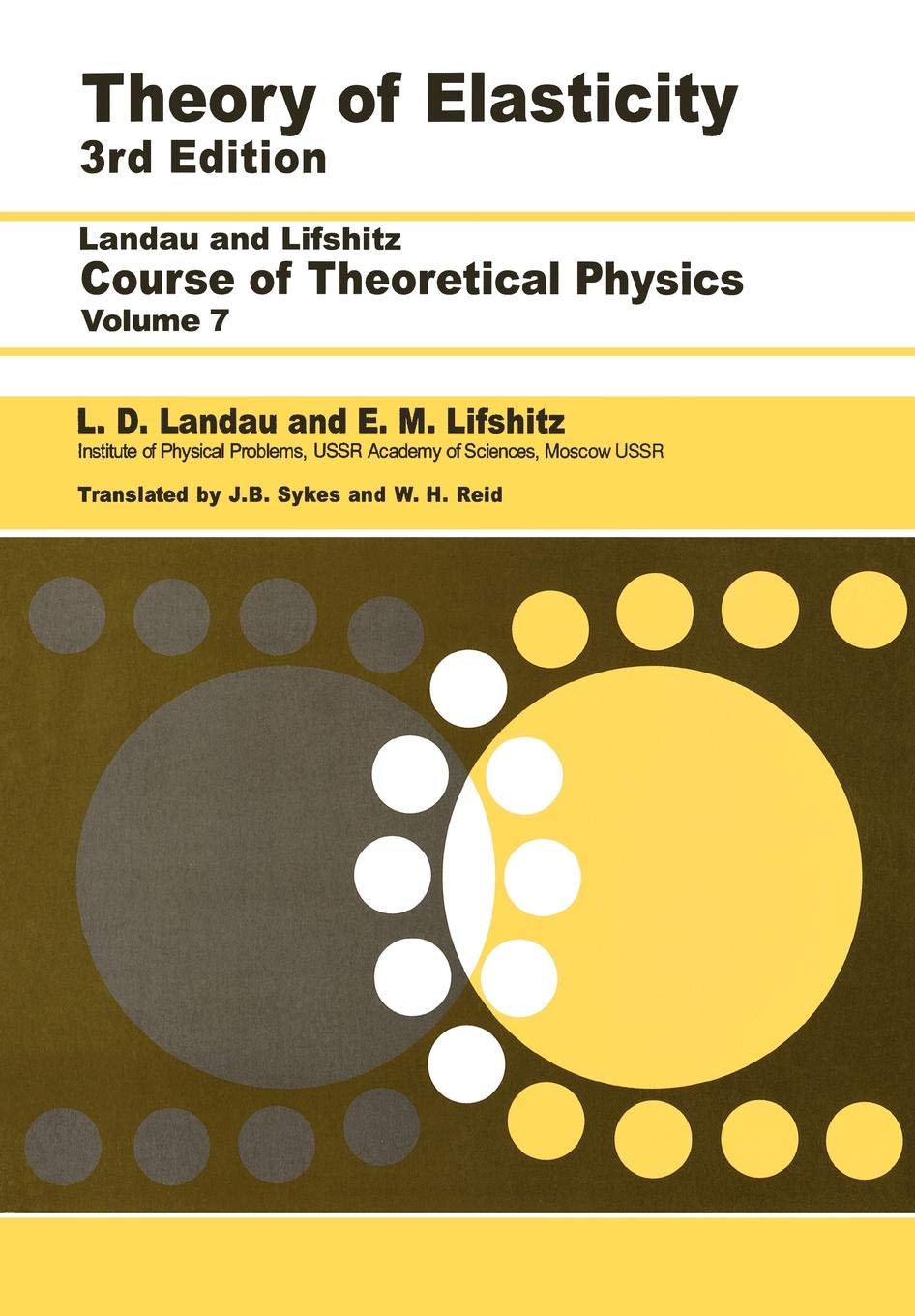Theory of Elasticity (Book): Difference between revisions
No edit summary |
|||
| (One intermediate revision by the same user not shown) | |||
| Line 11: | Line 11: | ||
|isbn13=978-0-08-057069-3 | |isbn13=978-0-08-057069-3 | ||
}} | }} | ||
{{NavContainerFlex | |||
|content= | |||
{{NavButton|link=[[Read#Landau|Read]]}} | |||
{{NavButton|link=[[Elasticity (Physics)]]}} | |||
}} | |||
Elasticity theory is the solid counterpart to Fluid Mechanics, the other branch of continuum mechanics. | Elasticity theory is the solid counterpart to Fluid Mechanics, the other branch of continuum mechanics. | ||
This section is under construction. We will include further materials on finite element methods, linear and nonlinear elasticity, chain complexes from symmetric tensors, and geodynamics at minimum. | |||
=== Applications === | === Applications === | ||
Latest revision as of 16:59, 6 December 2023
| Theory of Elasticity | |

| |
| Information | |
|---|---|
| Author | Lev Landau |
| Language | English |
| Series | Course of Theoretical Physics |
| Publisher | Elsevier Science |
| Publication Date | 1986 |
| Pages | 187 |
| ISBN-13 | 978-0-08-057069-3 |
Elasticity theory is the solid counterpart to Fluid Mechanics, the other branch of continuum mechanics.
This section is under construction. We will include further materials on finite element methods, linear and nonlinear elasticity, chain complexes from symmetric tensors, and geodynamics at minimum.


